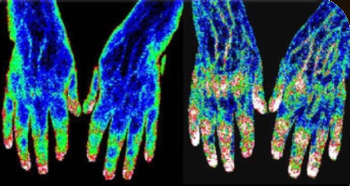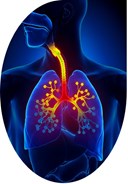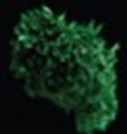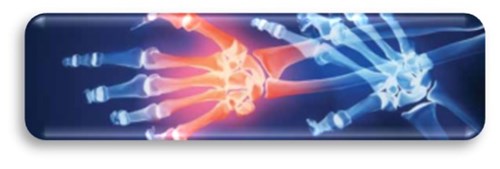MISSION STATEMENT
The Institute of Biomedical & Envirnmental Health Research focuses on humans and their environment, addressing core research issues in human health and disease, in drug discovery and design, through to human impact on the environment and the impact of environment on human health.
Our multidisciplinary community brings together life, physical and environmental scientists in a holistic approach to research.
Aims
- To understand health and disease in humans and the environment with a view to understanding and exploiting their interactions.
- To focus existing expertise and enhance multidisciplinary strengths to address challenges presented by UN Sustainable Development Goals and align with national and international strategic priorities.
- To underpin our teaching with a strong research community in biomedical and environmental science.
- To enhance knowledge transfer within our disciplines, enabling strong links with key national and international stakeholders including industrial partners, maximising societal impact.
Activity
- Our activity focuses on strengths within a number of key research centres/groups leading core themes.
- The high level drivers of human health and disease, drug design and discovery, anthropogenic impacts and environmental systems are co-ordinated by key research active staff, focusing integrated research towards long-term goals.
Long Term Vision
- To expand high impact research programmes using multidisciplinary
approaches. - To maximise the benefit of our research to industry, the public sector and other stakeholders.
RESEARCH THEMES
Centre for Musculoskeletal Science (Theme: Chronic Inflammatory Diseases)
The Centre for Musculoskeletal Science (CMS) is a highly successful collaborative team of scientists and clinicians from UWS and the University of Glasgow who form a thriving scientific research environment with direct clinical links. The group focus is on regulatory mechanisms and their disturbance during chronic inflammatory diseases, and in development and evaluation of novel drug therapies. Main research themes include arthritis and chronic obstructive pulmonary disease.


Infection & Microbiology Research Group
Our research spans areas of microbiology from human to environmental health. Within the human health remit we have projects in infection control in public health to studies of the immune response and development of new medicines for parasitic infections. Within the environmental field, we are studying the emergence of antimicrobial resistance and how microbes can be utilised in bioremediation. Our research partners include international institutions, industry and the NHS.


Centre for Environmental Research
Our research interests focus on the inextricable link between human health and health of our environment. From geochemical cycling through anthropogenic contamination to the impact of human activities on animal welfare, our combination of biologists, environmental scientists, chemists, engineers and mathematicians allows us to address the relationship between humans and their environment.

KEY PROJECT SUMMARIES
Project: Disinfection Testing Unit – Cleaning and Disinfection with Healthcare Settings [addressing UN Sustainable Development Goals 3,6,9,11,13,14]
Research Team: Dr W Mackay, Prof. Fiona Henriquez, Kenny Richardson, Ngozi Amaeze, Dr Claire Chalmers
Coronavirus SARS-CoV-2 has highlighted the importance of infection control in healthcare settings and in the community. We have been working continuously since the beginning of the outbreak with academic and industry partners to support the Worldwide effort to contain the pandemic. Our research and consultancy work focuses on the prevention of the spread of infection in healthcare settings, by investigating the role of the built environment and staff uniforms and PPE in the spread of infection. We also have expertise in studying the persistence and survival of pathogens in healthcare settings and how common environmental factors contribute to this, and disinfection susceptibility. Work with the Scottish Ambulance Service has focused on the washing of ambulance staff uniforms and cleaning of ambulances as measures to reduce the risk of the spread of infection. Our work with companies focuses on the independent evaluation of disinfection technologies, supported by our new clinical research laboratories including a purpose built infection control single occupancy hospital isolation room for the safe testing of disinfection technologies and procedures. In 2020-2021, we have collaborated with 9 different industrial partners, including international companies on COVID-19 related work, optimising and validating new anti-viral and anti-bacterial disinfectant agents (including environmentally friendly compounds) and protocols and optimising the efficacy of fabric face coverings and contributing to government ‘calls for evidence for COVID-19 related matters’. Projects have been funded through the Scottish Funding Council, Innovate UK and consultancy.
Project: Creating the Borders and Airways Training Hub (BREATH) to Combat COPD [addressing UN Sustainable Development Goals 3, 4 and 9]
Research Team: Dr Gary Litherland, Dr Anne Crilly, Dr Andrew MacKenzie, Dr Iain McLellan, Dr W Mackay, Dr Andisheh Bakhshi, Dr Robin Freeburn, Prof Carl Goodyear, Prof John Lockhart, Dr Joanna Brzeszczynska, Lynette Dunning, Kenny Richardson
COPD is an incurable and progressive lung condition characterised by progressive airflow reduction, breathing difficulties and irreversible lung damage – and ranks as the 3rd leading cause of death world-wide. Despite the high prevalence of COPD and associated mortality and morbidity within Scotland and in both Ireland and Northern Ireland, there has been insufficient research focus in this field. Funded by €7.7m Interreg VA funding from the Special EU Programmes Body, our partnered initiative to combat COPD in these regions has established a new research training hub – the Borders Regions Airways Training Hub (BREATH). Within BREATH we have brought together 50 researchers (including 19 PhD students) to investigate key aspects of COPD pathology including airway epithelial and smooth muscle dysfunction, focusing on novel roles for PARs.
http://breath-copd.org
Project: Key Lab for Shale Gas Resource Exploitation, Hunan University of Science & Technology (HUNST), PRC [addressing UN Sustainable Development Goals 2,6,7,9,12,15,17]
Research Team: Prof Andrew Hursthouse, Dr Iain McLellan, Dr Steven Kelly, Dr Richard Thacker
Partnership established with HNUST since 2015, resulted in Chinese Government Fellowship awards to Prof Hursthouse as 100 Talent High End Visiting Scholar appointed to the Hunan Regional government Key Lab. The Key Lab was established to research improved methods to explore and assess mineral resource and address control and remediation of environmental impacts. Focused on: 1. Innovative geophysical methods to improve exploration in complex physical terrains; 2. better geological evaluation of resources helps to target exploitation strategies and minimise environmental disturbance and 3. New methods to treat environmental pollutants reducing impact and providing strategies to deal with legacy environmental pollution.
These address real local issues but are also common world-wide – both within China and across terrains where resources are exploited for historical mining and new exploitation strategies. Research collaboration between the 30+ academic staff in HNUST and CER members has led to publications in waste management, resource discovery and mitigation of environmental impact of exploitation. Staff exchange and visiting fellowships to UWS and PhD studentships. It has also supported development of specialist training for Chinese Government delegates through SAFEA awards. http://hnoilgas.hnust.edu.cn/
Project: Aquaculture [addressing UN Sustainable Development Goals 14]
Research Team: Prof Brian Quinn, Prof Fiona Henriquez, Dr Mhairi Alexander
We are developing new diagnostic tools to assess fish health in aquaculture (SAIC, KTP, industry funded). Identifying fish blood parameters which are indicative of potential disease outbreaks or health problems can act as an early warning measure. We are understanding how Neoparamoeba causes amoebic gill disease to design effective treatment. Neoparamoeba causes amoebic gill disease, which impacts fish health and coastal economies.
Project: Contact Eye Infections [addressing UN Sustainable Development Goals 3]
Research Team: Prof Fiona Henriquez, Dr Roderick Williams, Dr W Mackay
Award-winning research, which focused on the sight-threatening parasite Acanthamoeba and the development of technology to prevent potential blindness in contact lens wearers by inhibiting the essential metabolic pathways of Acanthamoeba, which the human host is unable to do. The project is core to an international network of Ophathalmologists, contact lens specialists, patients, industry and academic researchers with the aim to protect eye health, aligning to UN SDG 3.
Project: Alleviating the Burden of Osteoarthritis [addressing UN Sustainable Development Goals 3, 4 and 9]
Research Team: Prof John Lockhart, Prof Carl Goodyear, Dr Anne Crilly, Dr Gary Litherland, Dr Andrew MacKenzie, Dr Carmen Huesa, Lynette Dunning
Osteoarthritis (OA) is a very common and painful condition that affects joints like hips, knees, hands and feet. It occurs when soft protecting tissue thins and roughens, compromising the natural cushion that normally separates the ends of bones. This degenerative disease represents a significant unmet medical need - joint replacement and other treatment is a major drain on health services around the world, and the condition has a considerable negative impact on quality of life for hundreds of millions of people. There is as yet no way of curing osteoarthritis. For decades it’s been accepted that cartilage deteriorates with age, leading to stress on the bone. One revolutionary finding by our UWS team is that in many cases the bone changes before the cartilage – which casts an entirely different perspective on OA. Research on protease-activated receptors (PARs) and the role they play are leading to significant breakthroughs in our understanding of the disease.
UWS researchers, as part of a consortium of universities, have been awarded a £1.2 million programme grant from Versus Arthritis to bring together, for the first time, experts across 5 universities in bone, matrix, molecular and systems biology in a concerted effort to better understand osteoarthritis – particularly in dissecting what role the matriptase-PAR2 axis contributes to OA pathogenesis.

Project: Aquatic Animal Health and Welfare [addressing UN Sustainable Development Goal 14]
Research Team: Prof Kath Sloman, Dr Mhairi Alexander, Dr Frances Orton, Dr Phillip Cowie, Prof. Fiona Henriquez, Dr Iain McLellan, Prof. Jose Alcaraz-Calero, Prof. Brian Quinn.
Our work on aquatic animal health and welfare brings together a diversity of aquatic researchers whose research has impacts within aquaculture, conservation, animal welfare and ecotoxicology. Working with industrial collaborators we are developing behavioural tools to test the attractiveness of novel diets to shrimp in aquaculture and improving the welfare of fish held and transported within the ornamental trade. Our conservation-related projects range from understanding how pollutants affect heath and reproduction in wild amphibians and how large-scale coral reef rehabilitation in Indonesia influences the return of fish communities. Ecotoxicology projects within the group investigate the impact of microplastics on aquatic organisms and the effects of multiple stressors on health and reproduction in freshwater invertebrates.
Project: Antimicrobial resistance in the environment [addressing UN Sustainable Development Goals 3, 6,9,11,12, 14,15.]
Research Team: Prof. Fiona Henriquez, Prof Andrew Hursthouse, Prof John Connolly, Dr Iain McLellan, Dr Roderick Williams, Dr Kiri Rodgers, Dr Regina Esiovwa, Ronnie Mooney
This work has stemmed from a cross-disciplinary collaboration and focuses on addressing the emergence of AMR in the environment and the development of mitigation strategies with a focus on a ‘One Health’ approach. Our research includes the role of protists in protecting and influence resistant bacteria and the impact of anthropogenic influence has had on microbial communities. The work is funded by NERC and involves geochemistry, social science, microbiology and engineering disciplines.
MEMBERS/KEY STAFF
Dr Mhairi Alexander
Senior Lecturer in Animal Behaviour
Email: mhairi.alexander@uws.ac.uk
Pure profile: https://research-portal.uws.ac.uk/en/persons/mhairi-alexander
Dr Andisheh Bakhshi
Lecturer in Statistics
Email: andisheh.bakhshi@uws.ac.uk
Dr Claire Chalmers
Deputy Dean
Email: claire.chalmers@uws.ac.uk
Dr Phillip Cowie
Lecturer in Zoology
Email: phillip.cowie@uws.ac.uk
Pure profile: https://research-portal.uws.ac.uk/en/persons/phillip-cowie
Dr Anne Crilly
Lecturer in Immunology; BREATH Principal Investigator
Email: anne.crilly@uws.ac.uk
Pure portal: https://research-portal.uws.ac.uk/en/persons/anne-crilly
Dr Ciaran Ewins
Senior Lecturer in Forensic Science
Email: ciaran.ewins@uws.ac.uk
Pure profile: https://research-portal.uws.ac.uk/en/persons/ciaran-ewins
Dr Robin Freeburn
Senior Lecturer in Cell Biology
Email: robin.freeburn@uws.ac.uk
Pure profile: https://research-portal.uws.ac.uk/en/persons/robin-freeburn
Dr Farah Jaber
Lecturer in Biomedical Science
Email: farah.jaber@uws.ac.uk
Pure profile: https://research-portal.uws.ac.uk/en/persons/farah-jaber
Dr Steven Kelly
Lecturer in Microbiology
Email: steven.kelly@uws.ac.uk
Pure profile: https://research-portal.uws.ac.uk/en/persons/steven-kelly
Dr Gary Litherland
Lecturer in Cell and Cartilage Biology; BREATH Principal Investigator
Email: gary.litherland@uws.ac.uk
Pure profile: https://research-portal.uws.ac.uk/en/persons/gary-litherland
Dr Andrew MacKenzie
Lecturer in Pharmacology
Email: andrew.mackenzie@uws.ac.uk
Pure profile: https://research-portal.uws.ac.uk/en/persons/andrew-mackenzie
Dr William Mackay
Reader in Infection Control
Email: w.mackay@uws.ac.uk
Pure profile: https://research-portal.uws.ac.uk/en/persons/william-mackay
Dr Gail McGarvie
Head of Division; Senior Lecturer in Cell Biology
Email: gail.mcgarvie@uws.ac.uk
Pure profile: https://research-portal.uws.ac.uk/en/persons/gail-mcgarvie
Dr Iain McLellan
Senior Lecturer in Environmental Chemistry
Email: iain.mclellan@uws.ac.uk
Pure profile: https://research-portal.uws.ac.uk/en/persons/iain-mclellan
Dr Fiona Menzies
Senior Lecturer in Immunology
Email: fiona.menzies@uws.ac.uk
Pure profile: https://research-portal.uws.ac.uk/en/persons/fiona-menzies
Dr Carrie Mullen
Lecturer in Forensic Science
Email: carrie.mullen@uws.ac.uk
Pure profile: https://research-portal.uws.ac.uk/en/persons/carrie-mullen
Dr Frances Orton
Lecturer of Ecotoxicology
Email: frances.orton@uws.ac.uk
Prof Brian Quinn
Professor of Ecotoxicology
Email: brian.quinn@uws.ac.uk
Pure profile: https://research-portal.uws.ac.uk/en/persons/brian-quinn
Prof. Katherine Sloman
Professor of Aquatic Biology
Email: katherine.sloman@uws.ac.uk
Pure profile: https://research-portal.uws.ac.uk/en/persons/kath-sloman
Dr Mostafa Rateb
Lecturer in Analytical Chemistry (Microbial Natural Product Chemistry)
Email: mostafa.rateb@uws.ac.uk
Pure profile: https://research-portal.uws.ac.uk/en/persons/mostafa-rateb
Dr Richard Thacker
Senior Lecturer in Agricultural Entomology
Email: richard.thacker@uws.ac.uk
Pure profile: https://research-portal.uws.ac.uk/en/persons/richard-thacker
Dr Alan Terry
Lecturer in Mathematics
Dr David Thompson
Lecturer in Nanochemistry
Email: david.thompson@uws.ac.uk
Pure profile: https://research-portal.uws.ac.uk/en/persons/david-thompson
Dr Jamie Turner
Lecturer in Environmental Biology
Email: james.turner@uws.ac.uk
Pure profile: https://research-portal.uws.ac.uk/en/persons/jamie-turner
Dr Roderick Williams
Lecturer in Microbiology & Metabolomics
Email: roderick.williams@uws.ac.uk
Pure profile: https://research-portal.uws.ac.uk/en/persons/roderick-williams
Dr Mohammed Yaseen
Lecturer in Organic Chemistry
Email: mohammed.yaseen@uws.ac.uk
Pure profile: https://research-portal.uws.ac.uk/en/persons/mohammed-yaseen
Honorary/Visiting Staff
- Prof William Ferrell (University of Glasgow)
- Prof Carl Goodyear (University of Glasgow)
- Prof R van’ t Hof (Liverpool University)
- Prof Lorcan McGarvey (Queen’s University Belfast)
- Prof Iain McInnes (University of Glasgow)
- Prof Robin Plevin (Strathclyde University)
- Prof Craig Roberts (Strathclyde University)
- Prof Andrew Rowan (Newcastle University)
- Prof Cristina Silva Pereira (ITQB, UNL, Portugal) https://www.itqb.unl.pt/research/biology/applied-and-environmental-mycology
- Prof Sathish Srinivasan (NHS Ayrshire & Arran)
PARTNERS
ORGANISATIONS
- Scottish Government Cross Party Group on Lung Health
- Teva UK
- Chiesi UK
- AstraZeneca
- GlaxoSmithKline
- NHS Trusts:
- District Councils
- Ayrshire Councils – North Ayrshire Council; East Ayrshire Council; South Ayrshire Council
- Dumfries & Galloway Council – Dumfries & Galloway Council
- British Lung Foundation
- Chest Heart & Stroke Scotland
- Glasgow Science Festival
- Waltham Petcare Science Institute
- Mars Inc.
- Skretting ARC
- Pets at Home
- Bausch and Lomb Eyecare
- Acanthamoeba Keratitis Patient Advocate
- UK Government - Department of Environment Food and Rural Affairs
- NatureScot
- Froglife
- Scottish Environment Protection Agency
UNIVERSITIES
- Centre for Ecology and Hydrology (NERC)
- Dundalk Institute of Technology (Ireland)
- Edinburgh Napier University
- Florida International University (USA)
- HNUST (PRC)
- ITQB, UNL (Portugal)
- Newcastle University
- Queen’s University Belfast (Northern Ireland)
- Stellenbosh University (South Africa)
- The University of Edinburgh
- University of Exeter
- University of Glasgow
- University of Hull
- University of Liverpool
- University of New South Wales (Australia)
- University of Strathclyde
RESEARCH POOLS
Scottish Alliance for Geoscience, Environment and Society
Marine Alliance for Science and Technology for Scotland (MASTS)
Scottish Universities Life Sciences Alliance (SULSA)
UN SDGs (for reference)
- NO POVERTY – end poverty in all its forms everywhere
- ZERO HUNGER – end hunger, achieve food security and improved nutrition and promote sustainable agriculture
- GOOD HEALTH AND WELL-BEING – ensure healthy lives and promote well-being for all at all ages
- QUALITY EDUCATION - ensure inclusive and equitable quality education and promote lifelong learning opportunities for all
- GENDER EQUALITY - achieve gender equality and empower all women and girls
- CLEAN WATER AND SANITATION – ensure availability and sustainable management of a water and sanitation for all
- AFFORDABLE AND CLEAN ENERGY – ensure access to affordable, reliable, sustainable and modern energy for all
- DECENT WORK AND ECONOMIC GROWTH – promote sustained, inclusive and sustainable economic growth, full and productive employment and decent work for all
- INDUSTRY, INNOVATION AND INFRASTRUCTURE – Build resilient infrastructure, promote inclusive and sustainable industrialisation and foster innovation
- REDUCED INEQUALITIES – reduced inequality within and among countries
- SUSTAINABLE CITIES AND COMMUNITIES – make cities and human settlements inclusive, safe, resilient and sustainable
- RESPONSIBLE CONSUMPTION AND PRODUCTION – ensure sustainable consumption and production patterns
- CLIMATE ACTION – take urgent action to combat climate changes and its impacts
- LIFE BELOW WATER – conserve and sustainably use the oceans, seas and marine resources for sustainable development
- LIFE ON LAND – protect, restore and promote sustainable use of terrestrial ecosystems, sustainably manage forests, combat desertification, and halt and reserve land degradation and halt biodiversity loss
- PEACE, JUSTICE AND STRONG INSTITUTIONS – promote peaceful and inclusive societies for sustainable development, provide access to justice for all and build effective, accountable and inclusive institutions at all levels
- PARTNERSHIPS FOR THE G0ALS – strengthen the means of implementation and revitalise the global partnership for sustainable development